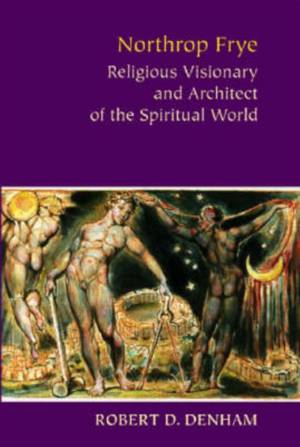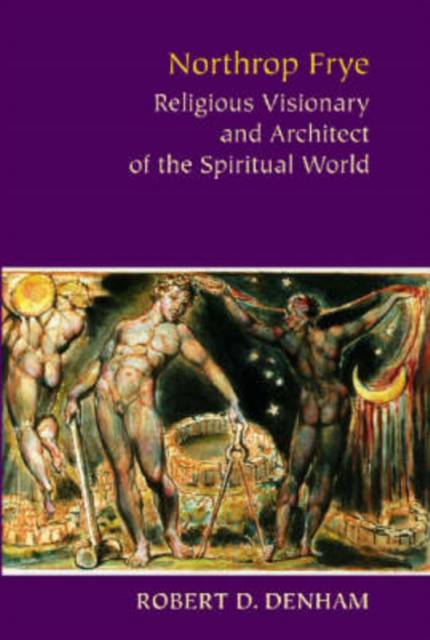
- Afhalen na 1 uur in een winkel met voorraad
- Gratis thuislevering in België vanaf € 30
- Ruim aanbod met 7 miljoen producten
- Afhalen na 1 uur in een winkel met voorraad
- Gratis thuislevering in België vanaf € 30
- Ruim aanbod met 7 miljoen producten
Northrop Frye
Religious Visionary and Architect of the Spiritual World
Robert D DenhamOmschrijving
Even the casual reader will notice a strong preoccupation with religion in the work of Northrop Frye. In his latest book, however, the esteemed Frye scholar Robert Denham shows that it played a far greater role than has been assumed--religion was in fact central to practically everything Frye wrote. Denham's focus shifts the emphasis from Anatomy of Criticism, Frye's most famous work, and places it on those works with which Frye began and ended his career--the early Fearful Symmetry and, fifty years later, his two studies of the Bible and The Double Vision. This reevaluation is based on a close examination of Frye's religiously charged language and aided by Denham's remarkable and unique access to Frye's notebooks. The notebooks' contents not only expand on ideas laid out in Frye's published works but also touch on subjects most readers would not associate with Frye, such as his wide reading in both Eastern religious texts and in esoteric traditions ranging from astrology to the Cabala.
Denham does not attempt to distill a theology from Frye's work; rather, he seeks to trace the movement of Frye's thought, demonstrating the imaginative use to which he put his wide-ranging reading. The result is a pivotal work, redefining our understanding of one of the most important humanists of the twentieth century.
Specificaties
Betrokkenen
- Auteur(s):
- Uitgeverij:
Inhoud
- Aantal bladzijden:
- 390
- Taal:
- Engels
Eigenschappen
- Productcode (EAN):
- 9780813922997
- Verschijningsdatum:
- 10/01/2005
- Uitvoering:
- Hardcover
- Formaat:
- Genaaid
- Afmetingen:
- 236 mm x 166 mm
- Gewicht:
- 693 g

Alleen bij Standaard Boekhandel
Beoordelingen
We publiceren alleen reviews die voldoen aan de voorwaarden voor reviews. Bekijk onze voorwaarden voor reviews.











